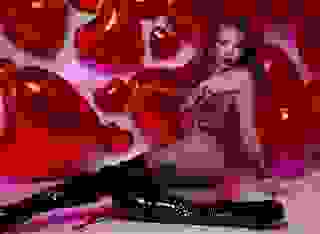Note: You can change font size, font face, and turn on dark mode by clicking the "A" icon tab in the Story Info Box.
You can temporarily switch back to a Classic Literotica® experience during our ongoing public Beta testing. Please consider leaving feedback on issues you experience or suggest improvements.
Click hereFather continued, "I've always thought of 'love' as being sort of like a house — or better, think of it like that Greek temple, oh you know..."
"The Parthenon?" I piped in.
"Yes, that's it, the Parthenon. So you have this big Temple that we'll call 'love', which is unified under a heavy roof. But to keep the roof up and solid, you need all of those columns that go around the entire outside of the temple. And in the kind of love that a marriage should be, those columns are made up of attitudes, feelings, values, of responsibilities, of mutual obligations to each other, respect for each other — a lot of different things.
"And understand something: the Temple of Love isn't built quickly or easily, and what it's made of changes over time."
I'm sure that I looked confused at what Father had just said. So he tried to clarify himself.
"Lizzie, when a couple first comes together, 'falls in love', and gets married, the Temple that they build isn't very stable. But it does have some strong columns to hold the roof up. One of the first and strongest is physical love. Now you're old enough, I guess, that your ma has talked to you about what 'physical love' is?"
I nodded in affirmation. Mother had told me about physical love, although at the time it wasn't a very attractive notion to me. It seemed to me to be too much like what I'd seen when the bulls were with the cows, or when the stallion serviced a mare. No thankee!
"OK," Pa continued, "Maybe we could even call that column 'lust', and let me tell you, among young people, that is a big, important part of 'love'. But usually there are already other columns in place as well, such as 'friendship' — usually two youngsters won't get married if they truly can't abide one another.
"Another column early on is 'family'. You may be together with your spouse, but especially when you're young, the families try to help out and give you support. That's how we got the farm, for example, from our families. And that support helps glue two people together. Without it, a couple can drift apart fairly easily.
"But there are also columns like 'pride', that are there to hold the roof in place. I was proud that your ma was my wife, and she was proud that I was her husband.
"So there are a lot of columns that support the 'love' right from the start. But without enough supports, or if the supports that are there aren't strong enough, then the roof that holds the whole structure together can fall apart. That's what happens when people 'fall out' of love, and because they haven't made the effort and spent the time to establish enough support columns yet. That seems to me to be why younger people, who haven't been together for long, are more inclined to split apart.
"As I said, though, over time, the columns continue to change and evolve. Some of the supports that were the mainstays of love early on, like physical love, are still strong, but even if they get weaker over time, it doesn't cause the structure to collapse, because other columns have grown that pick up the slack. Things like 'trust', 'respect' and 'loyalty' can't be there at first, because it takes time for them develop, to prove themselves.
"And as time goes on, certain feelings and values can actually grow, things like 'friendship' and 'companionship'. In a healthy love relationship, they continue to grow until one of the partners passes.
"Mutual obligations and responsibilities are like that too. Even early on two people know that they are responsible for each other — that's what the 'in sickness and health' and the 'for richer or poorer' means in the wedding vows. Another example is that right from the start, a man has an obligation, and is responsible, for protecting his wife and his family. And in a healthy love relationship, there are more obligations and responsibilities that develop over time. But you know what, Lizzie?"
I shrugged my shoulders not knowing what he was going to tell me.
"Even though there are more columns in our Temple, and, yes, they become more complicated, they tie two people together even more over time.
"The obligations and responsibilities, the attitudes, the values, the feelings. They become easier, because you grow to understand that when you support that roof that covers the person you love, you are not just covering and protecting them, you are covering yourself as well."
To tell you that I was surprised by what my Pa had just said would be an understatement. I couldn't remember him ever saying that much at one time, for one thing. But even more amazing was how much he seemed to have thought about the nature of love.
It just proved to me that you could never know what an adult was thinking about. It was amazing to realize how smart my Father was. And as I got older, he was getting more so!
*******
"That was a joke, Sarah!" I explained.
"I don't know why," she sniffed.
"You will one day," I said, trying to keep from laughing out loud.
***
As he finished, Pa stood up and turned to me.
"Ok, Lizzie, enough of that for today. Got things to do! These harnesses won't fix themselves." he said, but he didn't sound upset, he seemed happy to have answered my question.
As I was leaving the tack room, I put my hand on the doorframe and half-turned, facing back into the room.
"Pa?" I asked.
"Yes, Lizzie?"
"Do you love ma the way you were telling me?"
Pa's face darkened, I wasn't sure if it was from anger or some other deep emotion or just a passing cloud that blocked the light.
"Of course I do, how can you even ask?" he demanded, upset in a way that I had never seen him before.
" 'Cause I'm not sure she knows," I replied, maybe sounding a little sad.
For a moment, Pa's eyes went empty, like he'd been hit on the head with a two-by-four.
He was silent behind me as I walked out of the barn and back to the house.
The following day was Sunday, but on the farm life still started early regardless. No 'sleeping in' or 'taking it easy'. Cows still had to be milked; eggs collected, animals fed, watered, and put out to pasture.
By seven-o'clock that Sunday morning, all of us kids had finished our chores, both inside and outside, cleaned-up, and put on our Sunday clothes.
Pa was just a little behind us, because he still did the bulk of the more difficult work with the animals. I could find and collect the eggs in the chicken coop, but when heavy lifting was required, like tossing bales of hay out for the horses and cattle, that was still Father's job.
As I said, though, Pa was only a little later than we were to the breakfast table.
On the farm, breakfast was always an important, maybe the most important, meal of the day. It tended to be heavy foods, and lots of it: smoky, thick bacon; fresh eggs, toasted home-made bread, sometimes gravy and biscuits, as well as milk for us kids and coffee for Pa. And Mother was just as busy as the rest of us in the morning doing all of that cooking.
Breakfast that morning seemed strained. Pa was sitting quietly at the table, which he almost always was, and seemed to be in a thoughtful mood. Mother seemed wistful, although when the boys or I would ask for something to be passed or the like, she would smile and try to look happy, but afterwards she would retreat into the sadness that had encompassed her of late.
Before eight A.M., the food was eaten, the kitchen was clean, and we were in the buggy headed for church in town. At nine A.M., or thereabouts, church service started, and being Baptists, we would be there the rest of the morning, until lunchtime.
Of course, back then Sunday church was more than just a church service. It was a time to see and greet your neighbors, and often, after the service was over, there would be various social events. In a rural community like ours, everyone came to Sunday morning service, to hear the Word of God, and to participate in the community.
The church itself was a modest affair, built of wooden lap construction, with a steeple and a bell to tell us when the service was to begin. It was painted with white-wash, and the trim was a dark blue, as I recall. It was like a thousand other churches, plain and unpretentious. If you wanted to have some level of comfort in the pews, you brought your own cushions to sit on. The clear-varnished pews were not known for being easy on the hind-quarters. They were, I was told later, intentionally uncomfortable, to keep people awake during services.
Actually, the Sunday service went fairly quickly that day. We sang the hymns, and said our prayers. The collection plate was passed by the deacons, and communion was served for those who had been 'born-again'. "Do this in remembrance of me."
Then we settled back for the sermon, which was often an extended affair. The Reverend Dr. James McGinley, being a knowledgeable and eloquent man, understood that God had meant for him to share those talents with us. At length.
I don't remember being surprised at church very often when I was young. That morning was one of the few occasions when I was completely taken aback. For when the time came for the sermon, Dr. McGinley looked down at the congregation, and asked my father to come up to the pulpit.
"Brothers and Sisters," he said, "This morning Brother David asked me if I could let him say a few words to the congregation before I give my sermon. Brother David?"
Then he stepped back and sat in his chair, and Pa stood up behind the pulpit.
"Thank you, Reverend McGinley, I appreciate your giving me a couple of minutes to say my piece," he said, looking out at our friends and neighbors sitting in the pews.
"Now I know that you all are hoping that I will keep my words short," Pa said, with a twinkle in his eye, "because...Well, we all know Reverend McGinley, and we could all end up missing lunch if I go too long!"
Pa's witticism brought a laugh to the congregation — even Dr. McGinley was laughing. He lifted his hands from his lap, and with a huge smile on his face said, "Guilty as charged!"
Pa turned his head to face Dr. McGinley.
"I hope that extra dollar that I put in the plate this morning will help make up for my funnin' with you. I've always found your sermons brief and to the point, myself."
Everyone had another good laugh, but now, having calmed himself, Pa seemed ready to get serious.
"You all know me and my family. I'm a simple farmer, and I'm not much of a hand at public speaking. But this morning, I have something that needs to be said."
The whole church was quiet, while my Father, this plain man of the soil began to speak.
"Today is my eighteenth wedding anniversary. Eighteen years ago, in this very church, I married my wife, Sarah. Many of you, if you are old enough, were here for the wedding. What most of you don't know, is that the decision for Sarah and I to wed was made only two weeks before the ceremony, at her parents house.
"I didn't have any idea what was going on that Sunday afternoon. My parents told me to stay in my Sunday clothes because we were going to visit the neighbors that afternoon. That didn't really make any sense to me. I can't recall ever visiting the neighbors in our Sunday best. And my ma was always worried that I would do something foolish and rip or tear my suit, so usually she wanted me out of it as soon as we got home.
"After we arrived for our visit, we were seated in the family room, where Sarah's mother served us tea. There was some small talk, and after a couple of minutes, Sarah's mother left, and returned with Sarah.
"Once Sarah had arrived in the room, the talk turned to gifts of property, of sharing the expenses of building houses and barns. Then my father began to, I hate to say it, brag about my skills as a farmer. He said I understood the crops and the seasons. He claimed I knew how to deal with the weather..."
Now that got a laugh from all of the farmers!
"And then mentioned a few true things, like how I could plow twice the acreage in a day of any other farmer in the county!"
He said that with a huge grin, knowing that it would provoke a few of his friends. There was some good natured hooting, and sounds of disbelief.
"Ok, maybe he exaggerated just a little.
"But about that time I got the drift of what was going on. My folks and Sarah's parents were fixing to get us hitched! Most of you know I don't often have much to say, but I was so flummoxed by what they were saying that I couldn't have said a word if I wanted to."
Pa paused for a moment.
"Then I looked over and saw Sarah sitting there, with her hands resting in her lap, in her blue church dress. Up to that time, I had never paid too much attention to Sarah. She was five years younger than I was, and the last time I had noticed, she was a little girl. But the Sarah I was looking at that day was a young woman, with hair the color of new corn silk, and eyes that were blue as the sky on a cloudless summer day. Her skin was perfect, and the phrase 'peaches and cream' described what I saw that afternoon."
I snuck a peek at Mother about then, and she was blushing as she sat listening to Pa.
"I seem to remember Sarah's parents speaking in the background. I didn't hear what they had to say, I couldn't hear what they had to say. My heart was beating so loudly that my ears could only hear the blood pulsing. I was completely fixated on Sarah by then.
"And it wasn't just her beauty that had captivated me; I could see in her face and her jaw and mouth, her determination, strength, and indomitable spirit. As I looked at her, a voice in my mind said, 'this is a woman for the long haul, a woman who will stand by you, who will stand with you.'
"I knew at that moment that Sarah would be the mother of my children. She would be the woman with whom I would spend my life."
Father stopped again, and looked over the pulpit at the people, sitting intently listening to his words. He looked at me and caught my eyes.
"Yesterday, my daughter Lizzie asked me what I thought about love and romance. After we talked and as she was leaving me to return to the house, she told me that she wasn't sure that her mother, my Sarah, knew that I loved her.
"Now, I've always thought that it was most important for a man to show his love for his wife and family with his actions. What do they say — that actions speak louder than words. And I've always tried my best to show my family my love.
"But after Lizzie said that, I thought and prayed, and I realized that I had failed my wife. I had failed her, because while it is necessary to show your love through your acts, it is also necessary to tell the people you love that you love them. It is a needful confirmation."
He looked directly into Mother's eyes before he continued,
"So, before God, before this congregation, before our friends and neighbors, and the community, I have to say this:
"Sarah, I fell in love with you that day in your parents parlor; when my Father asked me whether I would accept you as my wife, I said that I did, and I meant it with all of my heart.
"And although I found it almost impossible to believe that I could love you any more, two weeks later, when you walked down the aisle of this church to become my bride, my heart almost burst with love and pride and happiness.
"And Sarah, I want you to know, that I love you even more today than I did the day we were married. And to make up for my neglecting to tell you often enough in plain words, how much I love you: on this, our wedding anniversary, I pledge that I will remind you every day for the rest of our lives."
I looked at Mother, with tears in my eyes and saw the tears streaming down her face as well. But she was smiling, and was unashamed by her tears. She looked up at Pa, and silently mouthed the words, "I love you too, David."
Father stepped down from the pulpit, and walked back to our pew. He sat down next to mother, and she took his arm , that muscled, strong arm, and wrapped her arm around his, and held him tight. The joy and pride in Mother's face left her aglow with an internal light.
The Reverend Dr. McGinley stood back up at the pulpit.
"And the people say?" he asked.
"Amen!" was the congregation's fervent and emotional response.
Now before he started to speak it was Dr. McGinley's turn for a moment of silence,
"Brothers and Sisters, I wrote a fine sermon for this morning, about Moses leading his people to the promise land. I think that I will wait for another day to give it.
"Thank you Brother David for your words of wisdom and love. They bring to mind the passage in First Corinthians: And now abideth faith, hope, love, these three; but the greatest of these is love.
"I can't think of any better thing to do today, the Lord's day, than for each of us to spend an afternoon with the people we love, letting them know just how much we love them. So let us enjoy God's blessing, and be especially thankful for our families on this beautiful day.
"And thank you Brother David for your fine 'sermon'. Just don't get too used to my pulpit!" he teased, shaking his finger at Father, before going to the closing prayer.
When we left the church, Mother was still clinging to Father's arm, although shortly after we were out of the building one way or another Ma and Pa were separated. Mother seemed to be surrounded by all of the women in the congregation. They were laughing and smiling, and whatever they were saying over there, everyone was happy. I looked at Mother, though, and I noticed that even though she was speaking with the other ladies, her eyes never left Father.
And as Father was standing there waiting for Mother, the men would come up and firmly shake his hand and say a few quiet words to him. He would nod, or respond in his deep voice. Oddly enough, his eyes never left Mother either! And with their eyes constantly in touch, it was as if they were the only two people standing in the field.
After some time had passed and the family was gathered together again, to celebrate this special day, we took the buggy into town and ate at the restaurant in the hotel on Main Street. We didn't eat in town often, only on very special occasions, and this was one of Pa's ways of telling Mother just how much he meant his words.
It wasn't until later that evening, after dinner, that I spoke to Father alone again, as we were cleaning up in the kitchen.
"Pa," I told him, "I thought you said that you didn't know much about romance?"
He looked at me with one eyebrow raised, waiting for me to continue.
"What you did in church this morning was just about the most romantic thing I've ever heard of," I said.
He sighed and then smiled.
"Lizzie, if you say that it was romantic to make a public declaration of my love for your Ma... well, I'll believe you.
"And you've taught me something I didn't know, this weekend."
"What?" I queried.
"Remember how I described 'love' as a Temple?"
I nodded.
"I didn't understand that there was a vital column in that Temple that I'd been ignoring and neglecting for a long time — which you call 'romance.' So I have a lot of work to do repairing that column, making sure it is strong and sure. Wouldn't want the roof of the Temple coming down on my head, like Samson, would I?"
At dusk, I was walking around, just enjoying the cool of the evening, and I found myself on the path to the pond again. But as I started up the step that time, I could see Mother and Father sitting together on that bench overlooking the pond, their arms around each other's waists sitting there, talking. I retreated lickity-split, as not to disturb them.
*******
Sarah looked up at me.
"And what happened next, Grandma?"
I relaxed and remembered back to those times, as my parents grew old together, and my brothers and I went off, married and had families of our own.







